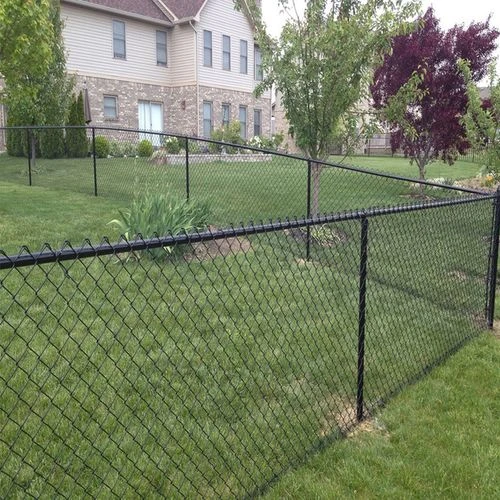 TEL:
+86-13102802206
TEL:
+86-13102802206
 Email:
fencenetting@china.com
Email:
fencenetting@china.com
 Language
Language
 TEL:
+86-13102802206
TEL:
+86-13102802206
 Email:
fencenetting@china.com
Email:
fencenetting@china.com
 Language
Language


The Cost of Chain Link Fencing with Barbed Wire A Comprehensive Overview
When it comes to securing your property, chain link fences topped with barbed wire are one of the most effective and economical options available. This type of fencing not only provides a formidable barrier to would-be intruders but also allows for visibility and ventilation, making it a popular choice for both residential and commercial properties. However, before making a decision, it's essential to understand the costs involved, as well as the factors that can influence these prices.
Understanding the Basics What is Chain Link Fencing?
Chain link fencing is made from interlocking steel wires that are woven together to form a sturdy and durable barrier. It's often galvanized to prevent rusting and prolong its lifespan. When barbed wire is added, twisted strands of wire with sharp spikes are installed at the top, enhancing security by deterring climbers and providing an additional layer of protection.
Average Costs
The cost of chain link fencing with barbed wire varies based on several factors, including the gauge of the wire, height of the fence, length of the installation, and geographic location. On average, homeowners can expect to pay between $10 to $30 per linear foot for a basic chain link fence. When barbed wire is included, the total cost can increase significantly. Adding barbed wire may add an additional $1 to $3 per linear foot.
For example, installing a 100-foot section of chain link fence with barbed wire could range from $1,100 to $3,000, depending on the specific materials and local labor costs. It's also important to account for any additional costs such as gates, corner posts, and installation fees, which can further impact the grand total.
Factors Influencing Cost
1. Height and Gauge Taller and heavier gauge chain link fencing typically costs more. For instance, a 6-foot tall fence will be more expensive than a 4-foot one. Similarly, a thicker wire gauge offers increased durability but comes at a higher price.

2. Materials Used While galvanized steel is standard for chain link fencing, alternative coatings like vinyl can enhance aesthetics and longevity, albeit at a higher cost. If you choose higher-quality barbed wire, the overall price can also increase.
3. Installation Complexity The terrain and soil condition can affect the installation costs. Rocky or uneven ground may require more labor or specialized equipment, increasing the overall expenses.
4. Local Labor Costs Installation prices can vary significantly depending on geographic location. Urban areas with a higher cost of living will generally see steeper labor rates.
5. Permits and Regulations In some locations, building permits may be required, especially for taller fences or those that fall under specific zoning regulations. These fees can add to the upfront costs.
Long-Term Value
While the initial cost of chain link fencing with barbed wire may be higher than some alternatives, it offers long-term value and durability. Chain link fences are resistant to weather elements, require minimal maintenance, and can last for decades when properly installed. The combination of chain link and barbed wire provides a formidable security measure, which can be crucial for properties that require additional protection, such as those housing valuable equipment or livestock.
Conclusion
Investing in a chain link fence with barbed wire can be a cost-effective solution for enhancing the security of your property. With average costs ranging from $10 to $30 per linear foot, it's crucial to assess your specific needs and research local prices, materials, and installation options. By considering the factors that influence costs, you can make an informed decision that balances budget with quality and security. Ultimately, a well-installed chain link fence with barbed wire not only serves as a deterrent against trespassers but also provides peace of mind, knowing that your property is properly protected.